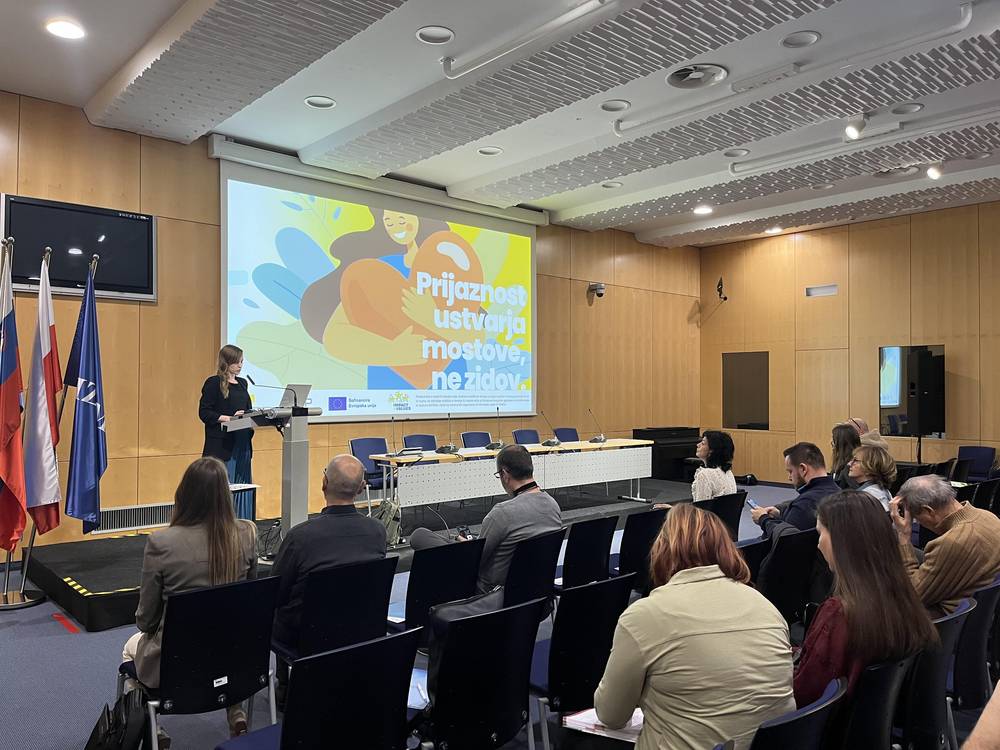"The consequences of hate speech are devastating, and it is imperative that we pay attention to the ways and means to prevent it," said Jerneja Turin, a consultant-analyst at the Human Rights Ombudsman's Centre for Human Rights, at the conference "Let's turn off hate speech, let's turn on reason" on the occasion of International Human Rights Day. The expert conference was organised by the PIP Institute within the framework of the Let's Be Friendly project and takes place at the Institute of Information Sciences Maribor (IZUM).
"Hate speech is a threat to the basic values of our society, such as dignity and equality. It is not only a form of verbal violence - it is a tool that marginalises, dehumanises and reinforces discrimination, prejudice and intolerance. At the institutional level, unpunished hate speech undermines trust in the legal system and democratic institutions, increases the sense of threat to vulnerable groups and undermines the foundations of the rule of law. It often leads to violence and deepens divisions in society," she said in her contribution.
The United Nations defines hate speech as any form of communication that attacks or uses derogatory language based on religion, nationality, race, gender, ethnicity or other personal circumstances. This problem goes beyond individuals - it affects entire communities and undermines the democratic foundations of society. On a personal level, it causes social isolation, anxiety and feelings of inferiority.
"History teaches us that the worst acts of violence often begin with speech that dehumanises," she said, outlining some of the efforts of the Ombudsman's institution to ensure a proper approach to hate speech. The Ombudsman has repeatedly called for responsible and respectful communication, especially in politics. He supported the adoption of a Code of Ethics for Members of the National Assembly, although its implementation is currently not effective enough.
In 2019, he carried out an analysis of prosecutorial and judicial practice regarding the prosecution of hate speech in Slovenia, following numerous warnings from the international and domestic public that hate speech is practically not prosecuted in Slovenia. It found that prosecutions are rare, and targets are often LGBTI+ people, Roma, migrants and other vulnerable groups. It therefore called for and urges more rigorous implementation of the law and training of judges and prosecutors to identify hate speech. He also suggested that the relevant ministries should prepare the legal basis for effective prevention of hate speech online, including on social networks. He also proposed to the Ministry of Justice to amend the legislation to allow for subsidiary prosecution of offences under Article 297 of the Criminal Code for a wider range of victims.
For several years, it has been pointing to the need for amendments to the Media Act to make it possible to remove illegal content more effectively and to introduce sanctions for the dissemination of hate speech.
As the response to hate speech and incitement to hatred must be understood in a broader sense, as criminal law measures only come into play once the act has been committed and are only aimed at the most serious forms, the Ombudsman has also recommended that content on human rights, critical thinking and non-violent communication be included in the curricula. Educating young people is key to preventing the spread of intolerance and discrimination, he believes.
"Hate speech is not only a legal problem, but requires preventive and educational action and the involvement of various stakeholders. We need state institutions, the education system, the media, civil society and individuals to join forces to build an inclusive and tolerant society," Turin added.

![[Translate to English:] Jerneja Turin](/fileadmin/_processed_/f/2/csm_IMG_5445_1a7ca64e9f.jpg)